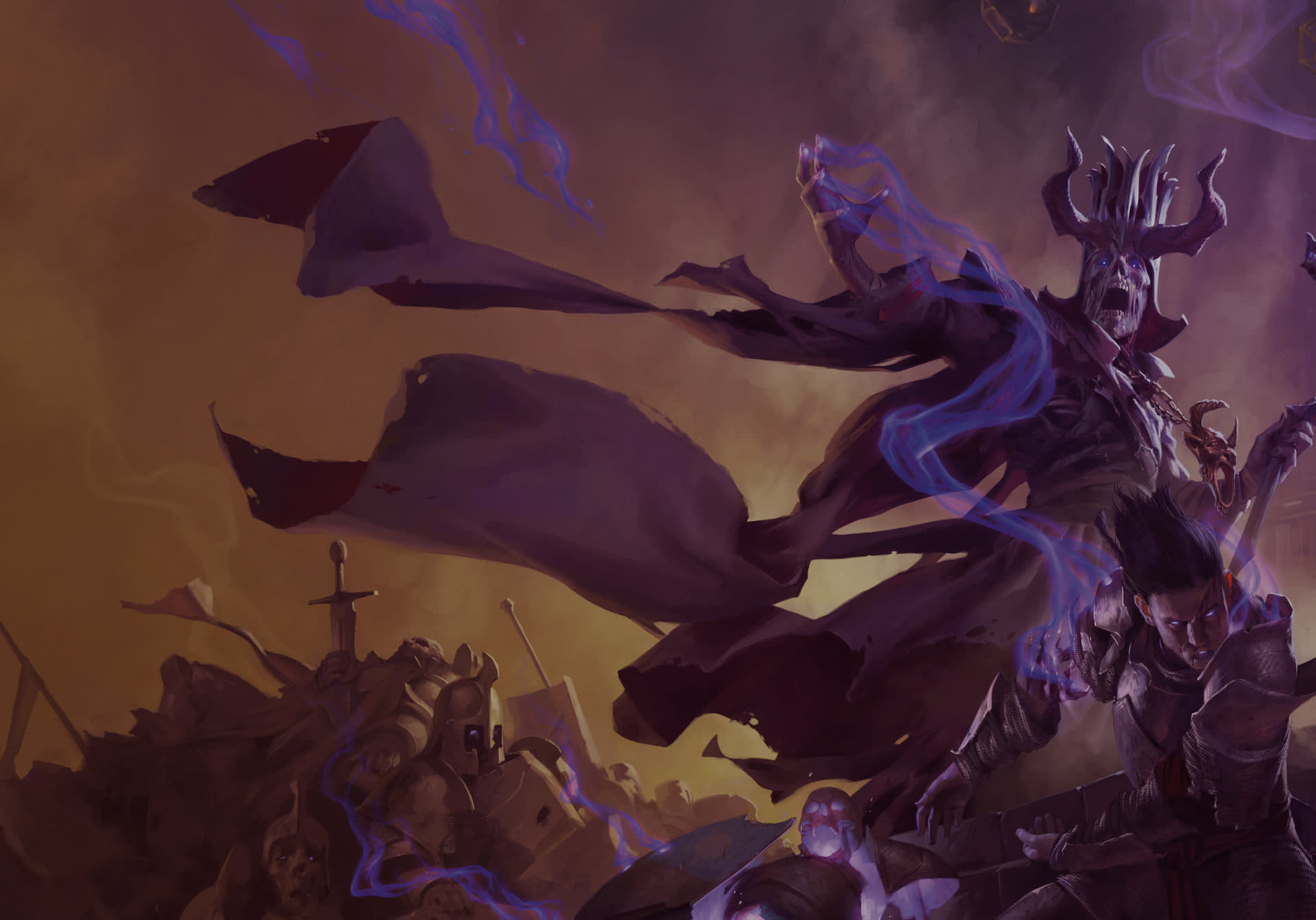‘Dungeon & Dragons’ Publisher Wizards of the Coast Is Releasing an ‘Irrevocable’ Creative Commons License

Dungeons & Dragons publisher Wizards of the Coast has made a major change to its plans for a new Open Game License (OGL) following community-wide backlash against a leaked version of the document that was sent to io9‘s Linda Codega earlier this month. The company published the OGL 1.0a in 2000, which gave third-party creators a “perpetual” license as defined by a System Reference Document (SRD) to use D&D 5e rules and mechanics for any and all of their Dungeons & Dragons content, as long as they don’t reference copyrighted material or make the work seem Wizards-official.
Ahead of the planned launch of One D&D, which is rumored to be the last major ruleset change to the Dungeons & Dragons system (though that seems unlikely given the game’s longevity), Wizards of the Coast announced in December that it would be releasing a new OGL this year—and the leaked document was heavily restrictive, leading to community-wide backlash, including some third-party publishers and creators leaving the system behind for other tabletop roleplaying games. Community members also canceled their subscriptions to the Wizards-owned D&D VTT D&D Beyond en masse, dealing a critical hit to parent company Hasbro’s bottom line.
Now, Wizards is changing course: In a new statement released January 19, Dungeons & Dragons executive producer Kyle Brink announced that the new OGL will be under the purview of the Creative Commons, “a nonprofit dedicated to sharing knowledge, and it developed a set of licenses to let creators do that.” This means the company is ceding much of its control over the license to CC, so Wizards won’t be able to change or revoke the OGL 1.2.
This is clearly a direct response to the community’s vitriol over the proposed OGL 1.1, and it’s similar to Pathfinder publisher Paizo’s announcement that it is developing a new, “open, perpetual, and irrevocable” system-neutral creative license for third-party developers called the Open RPG Creative License (ORC). The new OGL will apply strictly to Dungeons & Dragons, but it might ease creators’ fears.
Wizards’s statement notes that the OGL 1.2 will only apply to published TTRPG content (other content, like livestream shows, is covered under the Wizards of the Coast Fan Content Policy), and that one of its core goals is to keep people from creating hateful content—the one component of the leaked OGL that the community praised.
“There’s no royalty payment, no financial reporting, no license-back, no registration, no distinction between commercial and non-commercial,” the statement continues. “Nothing will impact any content you have already published under OGL 1.0a. That will always be licensed under OGL 1.0a. Your stuff is your stuff.”
However, the OGL 1.0a will still be revoked, meaning no one can create content using that OGL once 1.2 is officially released. This has been a major concern for creators and publishers, which Brink acknowledges in his statement. One reason for releasing the OGL 1.2 through CC is to assuage some of those concerns. He notes, “One key reason why we have to deauthorize: We can’t use the protective options in 1.2 if someone can just choose to publish harmful, discriminatory, or illegal content under 1.0a.”
In addition to preventing hateful content—which Wizards potentially seems ill-equipped to moderate given the racist depiction of the Hadozee race in its 2022 Spelljammer release—Brink states that another major goal of the OGL 1.2 is “giving good-faith creators the same level of freedom (or greater, for the things in Creative Commons) to create TTRPG content that’s been so great for everyone, while giving us the tools to ensure the game continues to become ever more inclusive and welcoming.”
Wizards of the Coast would never have made this choice without the community’s overwhelming opposition to the proposed OGL 1.1. For some, this pivot still won’t be enough, and the Dungeons & Dragons publisher will have to continue proving its dedication to creating a more inclusive product and tabletop community in order to win back that trust. For others, this will be a major step in the right direction. However creators and community members feel, the fact remains that without their swift action and persistent discussion, Dungeons & Dragons would not be getting a Creative Commons license. And that’s incredible to see.
You can read the full text of the new OGL 1.2 in the PDF download provided by Wizards of the Coast.
(featured image: Wizards of the Coast)
Want more stories like this? Become a subscriber and support the site!
—The Mary Sue has a strict comment policy that forbids, but is not limited to, personal insults toward anyone, hate speech, and trolling.—
Have a tip we should know? [email protected]